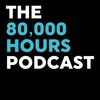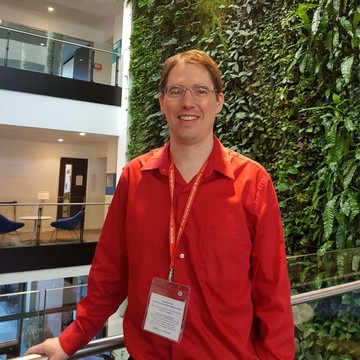

80,000 Hours Podcast
Rob, Luisa, and the 80000 Hours team
Unusually in-depth conversations about the world's most pressing problems and what you can do to solve them.
Subscribe by searching for '80000 Hours' wherever you get podcasts.
Hosted by Rob Wiblin and Luisa Rodriguez.
Subscribe by searching for '80000 Hours' wherever you get podcasts.
Hosted by Rob Wiblin and Luisa Rodriguez.
Episodes
Mentioned books

Jan 18, 2022 • 2h 35min
#43 Classic episode - Daniel Ellsberg on the institutional insanity that maintains nuclear doomsday machines
In this engaging conversation, Daniel Ellsberg, a former US defense analyst and author of "The Doomsday Machine," dives deep into the chilling reality of nuclear weapons. He discusses the dangers posed by automated systems like the Soviet Union's Dead Hand, which can trigger massive retaliation without human intervention. Ellsberg calls for greater transparency in military policies and critiques the legacy of Cold War mentalities. He emphasizes the need for nuclear disarmament and collaborative engagement to avert catastrophe, making a compelling case for rethinking global security.

27 snips
Jan 10, 2022 • 1h 24min
#35 Classic episode - Tara Mac Aulay on the audacity to fix the world without asking permission
Tara Mac Aulay, an operations expert with an impressive background in various sectors, discusses her adventurous journey from fast food to healthcare reform. From revolutionizing staff scheduling at 15 to addressing dire conditions in Bhutan's cancer treatment centers, she highlights the transformative power of an operations mindset. Tara shares her challenges leading the Centre for Effective Altruism and emphasizes the significance of efficient systems and open communication. With her resourcefulness, she inspires listeners to take initiative and fix inefficiencies in the organizations they encounter.

Jan 3, 2022 • 4h 42min
#67 Classic episode – David Chalmers on the nature and ethics of consciousness
David Chalmers, a renowned philosopher at NYU and expert on consciousness, delves into the fascinating nature of self-awareness and moral status in this lively conversation. He introduces the concept of 'philosophical zombies' to question our perceptions of consciousness. The discussion tackles ethical dilemmas around AI, animal suffering, and the implications of virtual reality on our understanding of identity. Chalmers challenges listeners to rethink the moral weight of consciousness in both biological and artificial beings, sparking profound reflections on existence.

7 snips
Dec 27, 2021 • 1h 43min
#59 Classic episode - Cass Sunstein on how change happens, and why it's so often abrupt & unpredictable
Cass Sunstein, co-author of 'Nudge' and a leading legal scholar, explores the surprising nature of social change. He discusses how movements like #MeToo and the Arab Spring emerge from seemingly resistant contexts. Delving into concepts like preference falsification and group polarization, he explains that hidden opinions and variable thresholds can trigger abrupt shifts. Sunstein emphasizes the importance of open dialogue, social media's role, and the complex dynamics that shape collective action, making activism feel more hopeful and compelling.

Dec 20, 2021 • 1h 26min
#119 – Andrew Yang on our very long-term future, and other topics most politicians won’t touch
Andrew Yang, a former presidential candidate and founder of the Forward Party, dives into unconventional topics often avoided by politicians. He envisions a long-term future where AI reshapes work, discussing how it may impact fulfillment and identity. Yang argues for universal basic income as a solution to job displacement and pushes for voting reforms to enhance democracy. He also explores the moral obligation to represent future generations and the importance of optimism in public discourse, addressing climate change and innovative solutions for a sustainable future.

5 snips
Dec 13, 2021 • 2h 16min
#118 – Jaime Yassif on safeguarding bioscience to prevent catastrophic lab accidents and bioweapons development
Jaime Yassif, a Senior Fellow for global biological policy at the Nuclear Threat Initiative, discusses pivotal strategies to prevent catastrophic biological risks. He highlights how transparency can deter nations from pursuing dangerous bioscience. Yassif outlines key motivations for developing biological weapons and proposes a robust three-part plan to reshape these motivations. The conversation also emphasizes the importance of international collaboration in biosecurity, enhancing governance post-COVID, and the need for responsible funding in bioscience research.

Nov 29, 2021 • 3h 8min
#117 – David Denkenberger on using paper mills and seaweed to feed everyone in a catastrophe, ft Sahil Shah
David Denkenberger, an engineering professor and co-founder of ALLFED, teams up with economist Sahil Shah, co-founder of Sustainable Seaweed. They delve into groundbreaking food solutions for catastrophic scenarios, such as using paper mills to convert wood into edible calories. Their discussion highlights the potential of seaweed as a sustainable food source, its rapid growth, and low resource needs. They also emphasize the importance of preparedness and innovative agricultural practices for global food security amid climate challenges.

8 snips
Nov 19, 2021 • 3h 46min
#116 – Luisa Rodriguez on why global catastrophes seem unlikely to kill us all
Explore the fascinating world of global catastrophe resilience, as Luisa Rodriguez examines scenarios where humanity could bounce back after disasters like nuclear war or pandemics. She challenges common narratives about extinction and highlights the potential for human ingenuity in crises. Delve into the importance of historical context and geographic factors in survival, alongside intriguing discussions on societal resilience and the pivotal role of cultural artifacts in recovery. A thought-provoking analysis of humanity's capacity to endure and innovate in the face of dire challenges!

Nov 12, 2021 • 3h 10min
#115 – David Wallace on the many-worlds theory of quantum mechanics and its implications
In this engaging discussion, guest David Wallace, a leading philosopher of physics from the University of Pittsburgh, delves into the many-worlds theory of quantum mechanics. He explores how alternate realities emerge from quantum choices, challenging our understanding of existence. Wallace also tackles the philosophical implications of decision-making in a multiverse. The conversation touches on ethical considerations in branching realities and the complexities of reconciling quantum mechanics with classical physics. Prepare for a mind-bending journey through the fabric of reality!

Oct 22, 2021 • 1h 43min
#114 – Maha Rehman on working with governments to rapidly deliver masks to millions of people
Maha Rehman, Policy Director at the Mahbub Ul Haq Research Centre, led a transformative mask-wearing initiative in Lahore during the COVID-19 pandemic. They discuss the groundbreaking randomized trial in Bangladesh, revealing how a 30% increase in mask usage can reduce infections. Rehman shares innovative strategies for mask distribution and community engagement, highlighting the surprising preference for blue masks. The conversation underscores the vital role of data-driven public health strategies in enhancing community health practices and overcoming logistical challenges.


